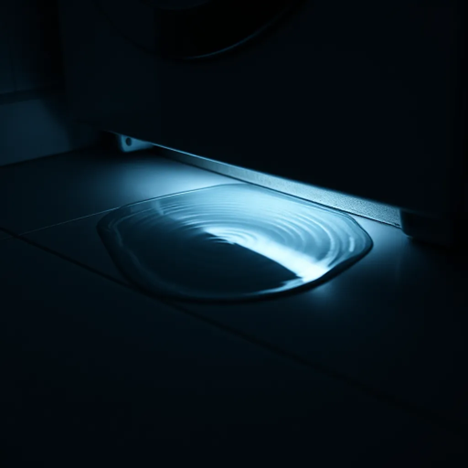Different Types of Water Detector Alarms: Wired vs. Wireless vs. Smart
Water doesn’t knock before it enters. A small leak might go unnoticed for days—until it saturates your subfloor, stains the drywall, or warps your wood trim. And just like that, you’re looking at expensive repairs.
A quality water detector alarm can be the difference between a manageable cleanup and a full-blown restoration. These alarms? They’re the quiet guardians tucked away near the risk zones. Some are hardwired into your home’s bones. Others rest beneath appliances, silently waiting. The most advanced? They text you. Literally.
If you’re someone trying to protect your home, save your sanity, and avoid preventable disasters, understanding the different types of water alarms is essential. Let’s explore wired, wireless, and smart systems—what they do, where they work best, and how to choose what fits.
What Are Water Detector Alarms?
These alarms are built to sense trouble before it spirals. Specifically, pooled water—the kind that collects after a leak or spill. Once the sensor comes into contact with moisture, it triggers an alert. Some beep. Some buzz. Some message your phone.
Typical culprits?
- A cracked basement foundation
- A leaky hose behind the washing machine
- The drip under the bathroom sink that no one noticed in time
You’ll usually find detectors in basements, bathrooms, under water heaters, or near kitchen appliances. Key idea: catch the water at its source—early.
Pro tip: Lay sensors flat in the lowest possible point of each area. Think: beside the water heater tank, behind toilet bases, directly under pipe joints, or beneath appliance hoses. A well-placed water detection alarm can catch that first sign of trouble.
Wired Water Detector Alarms
Old-school? Maybe. But reliable? Absolutely. These are connected directly to your electrical system or hardwired security platform. Once they’re in, they stay put.
Pros:
- No batteries to change. Continuous power from your home.
- Strong signal. No Wi-Fi dropouts or Bluetooth glitches.
Cons:
- Installation is a project. Especially in finished spaces. Retrofits may require cutting, drilling, or hiring a pro.
- Fixed location. Not exactly portable once installed.
These work best during renovations or new builds—when the walls are already open and wires are going in anyway.
Wireless Water Detector Alarms
Compact. Portable. Battery-powered. These alarms are often the go-to for everyday setups and DIY installations.
Pros:
- Install in minutes. No wires, no fuss.
- Move as needed. Want to test different locations? Easy.
Cons:
- Battery checks required. And yes, cold temperatures in unheated spaces can mess with battery life.
- Connectivity isn’t perfect. Thick walls? Long distances? Signals may drop. Some units also need syncing with a smart hub or app.
If you’re looking for flexibility without the extra tech overhead, wireless units hit the sweet spot. The right water detector alarm in the right place can save more than just property—it can save time, stress, and money.
Smart Water Detector Alarms
This is where things get futuristic. These alarms talk to your phone, update you in real time, and even team up with other smart devices.
Pros:
- Instant alerts. You’re at work, your basement’s flooding—you’ll know.
- Integrates with smart homes. Link it to Alexa or Google Home.
- Remote peace of mind. Great for vacation homes or hard-to-reach spaces.
- Optional shut-off valve control. Some systems can stop the water before damage spreads.
Cons:
- Price tags vary. Entry-level units can cost less than $50, but full-featured kits with multiple sensors and shut-off valves can run over $200.
- Setup can be tricky. Expect some app pairing, Wi-Fi setup, or hub integration.
Smart alarms suit anyone who travels often, juggles multiple properties, or simply wants their tech to work harder.
Choosing the Right Alarm for Your Home
Here’s where things get personal. Your perfect setup depends on where you live, what kind of risks your home faces, and how comfortable you are with tech.
1. Installation Comfort:
- Doing renovations? Consider wired.
- Need something fast and simple? Wireless is your friend.
2. Location Matters:
- Basements or utility rooms: Mix wired and wireless for complete coverage.
- Kitchens/laundry: Place sensors directly beneath appliances.
- Vacation homes or crawl spaces: Smart alarms bring visibility from a distance.
3. Daily Routine & Lifestyle:
- Travel often? Smart alarms keep you in the loop.
- At home most days? Simpler models may do just fine.
4. Budget Breakdown:
- Basic wired/wireless: $20–$60 each
- Multi-sensor kits: $80–$150
- Smart systems: from under $50 to $250+, depending on features
5. Don’t Overlook Sound:
- A faint beep in a distant corner won’t help. Make sure it’s loud enough to hear in your bedroom—or wherever you spend the most time.
Mix and match: A smart alarm for your vacation home, wireless units under your sinks, and a wired system in the utility room? That’s layered protection done right. Whether you choose one or a few, reliable water detector alarms offer crucial defense against unnoticed leaks.
Conclusion: Make Water Worry a Thing of the Past
No one wants to wake up to soaked floors and mounting repair costs. But being prepared doesn’t have to be overwhelming.
- Wired systems offer rock-solid dependability.
- Wireless ones are flexible and friendly for first-timers.
- Smart detectors take vigilance to a whole new level.
Whatever route you choose, the goal is the same: catch water where it shouldn’t be, before it becomes a catastrophe.
One more thing—test your alarms. Not just the batteries. The alert itself. Every month or so. Because when water starts creeping in, silence is the last thing you want.
FAQs
Q: How do I know which type of water detector alarm is best for my home?
A: It depends on your space, your habits, and how involved you want to get. If you’re frequently away, smart models can keep you informed from anywhere. For quick setup in common areas, wireless alarms are easy wins.
Q: Can smart water alarms work without Wi-Fi?
A: They can sound a local alarm, yes. But without Wi-Fi, you won’t get mobile alerts or remote access. Still, many models don’t need a paid plan for core features like app notifications.
Q: What maintenance do water detector alarms need over time?
A: Besides battery replacements and occasional Wi-Fi checks, don’t forget to test the actual alert. Tap the test button monthly, if available. Wired models are mostly set-it-and-forget-it.
Frequently Unasked Questions (FUQs)
Q: Will different alarm types interfere with each other in the same home?
A: Unlikely. They typically run on separate systems. Just double-check your wireless units’ frequencies if you’re running multiple brands.
Q: How does temperature or humidity affect the accuracy of water alarms?
A: Some are touchier than others. High humidity can sometimes trigger false alarms. Freezing temps? They’ll zap battery life in wireless models fast—especially in attics or crawl spaces.
Q: Are there hidden costs associated with smart alarms (subscriptions, app fees)?
A: Some brands charge for advanced perks like cloud storage or extra users. But plenty of models offer solid functionality—alerts, app access—without recurring costs. Always check the fine print before you buy.

